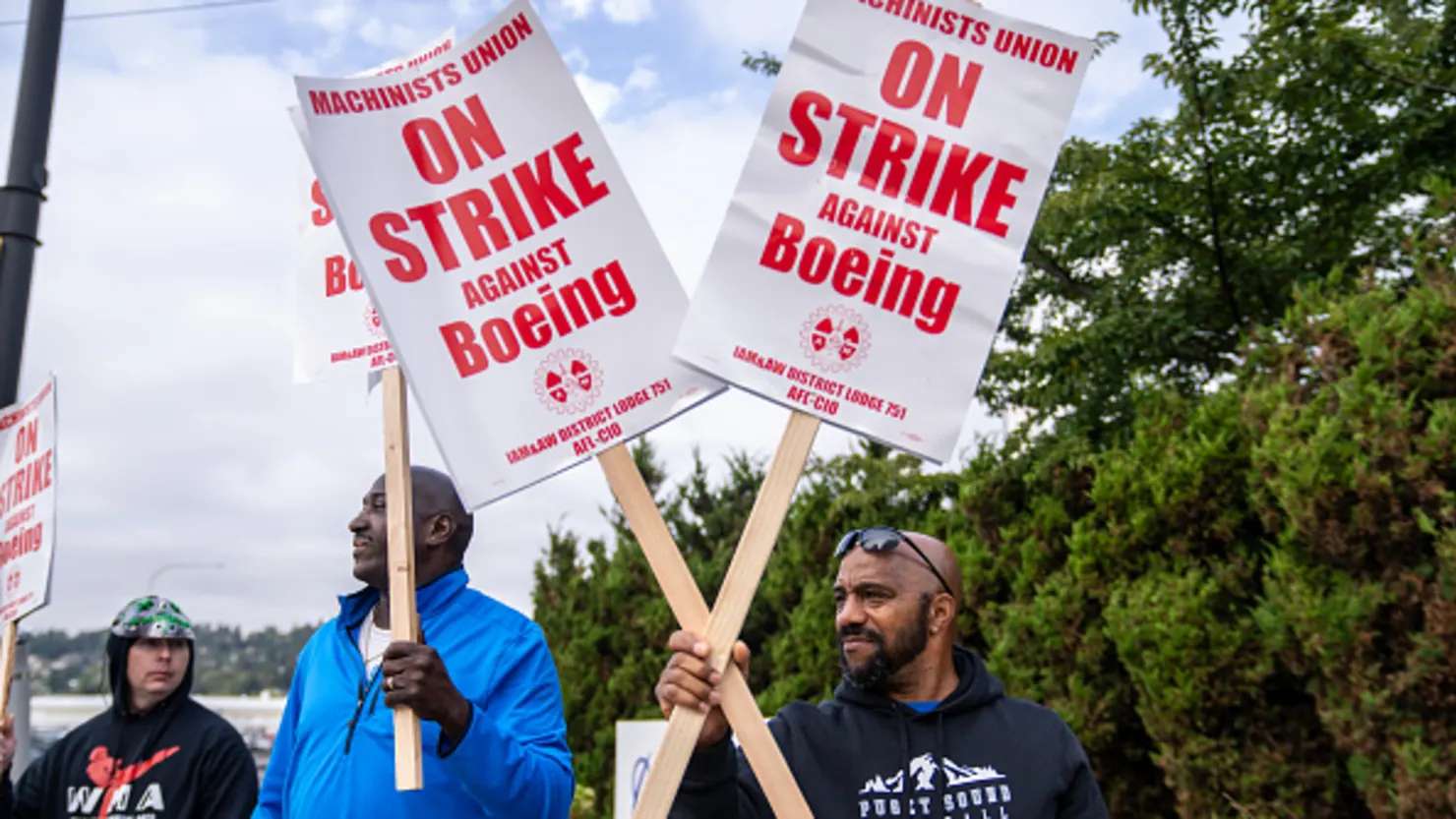Not satisfied with a 35% salary increase?
Boeing's strike wave is in its unprecedented fifth week.
On October 23, Boeing decided to compromise with the strikers and offered a new contract with a salary increase of 35% over four years. It also agreed to the workers 'request for pension contributions in the previous negotiation, and included a bonus and benefit package of $7,000.
Some workers have wavered about the plan, and the number of strikers in favor of the proposal has risen to 36%.Surprisingly, 64% of workers still voted against the proposal, insisting on the previously requested 40% salary increase.
This Boeing strike can be traced back to September 8 at the earliest.At the time, Boeing and its largest union, IAM District 751, announced that they had reached a preliminary agreement on a new four-year contract, under which Boeing would give workers a 25% pay increase over four years and promised to build the next aircraft broadcast in the Seattle area.
Clearly, after layoffs, workers with intensified tasks are unlikely to be satisfied with this salary increase.Soon, Boeing employees opposed the preliminary agreement with a vote of 94.6%, while a vote of more than two-thirds was needed to launch a strike.
Soon, at midnight on September 13, more than 30,000 Boeing employees in the Seattle area and Oregon officially launched a strike. This was also the largest strike in Boeing's history.The strikers demanded that Boeing must raise workers 'wages by 40% within four years, and that pensions, bonuses and other benefits must not be less.
Faced with the raging strike, Boeing responded with a tough attitude at first and announced that it would cut employee benefits in order to force the strike to end.Boeing Chief Financial Officer Brian West said that in order to ensure cash, Boeing decided (on the basis of layoffs) to further cut operating costs, including a hiring freeze and suspending non-essential employee travel until the strike ends.
On September 21, Boeing management played the second card and announced a further escalation of sanctions against employees.Boeing CEO Kelly Ortberg announced that he would impose unpaid leave on thousands of employees involved in the strike to make up for the $100 million a day in losses caused by the strike.Boeing will also stop paying health insurance for these workers on September 30.
However, the emotional striking workers were not defeated by management pressure, but instead further expanded the scale of the strike. As a result, many Boeing customers did not receive the promised aircraft within the agreed time even when most factories were suspended and shut down.
Robert Isom, CEO of American Airlines, complained that he hoped one day Boeing's problems would no longer be a nuisance because they had been struggling with them for five years.The media also believes that if the strike continues, problems may occur to nearly 10,000 Boeing suppliers in almost 50 states.
During this period, rating companies also came out to join in the fun.Standard & Poor's Worldwide announced that it could delay Boeing's recovery and hurt its credit rating.It is worth noting that due to a series of negative information, both Standard & Poor's and Moody's now give Boeing credit ratings slightly above junk level, which will greatly affect Boeing's subsequent credit and financing actions.
Due to pressure from many parties, Boeing finally decided to give in.On October 16, Boeing submitted its first sincere quotation plan.Insiders said the plan includes raising employees 'basic salaries (a 30% raise over four years), restoring performance bonuses for employees, increasing workers' retirement benefits, and doubling approved bonuses to $6,000.Boeing said that by the end of the four-year contract, the average annual salary of Boeing engineers will rise from the current $75,608 to $111,155.
However, the proposal did not mention too much about the pension issues that workers were concerned about, causing it to eventually fail.Media said workers rejected the proposal because some workers were dissatisfied with losing their pension plans in a previous contract they signed in 2014.
Until the latest agreement was announced, the situation had completely tilted towards Boeing workers.Jon Holden, chairman of Boeing's largest union, IAM District 751, said at a press conference on Wednesday night that we have made great progress on this agreement, but the new contract is not good enough to satisfy the workers, so they will continue to negotiate.
Kelly Ortberg, Boeing's new CEO, said that what he wants to do most now is to reach an agreement with the workers to get them back to work and improve the company's situation.

